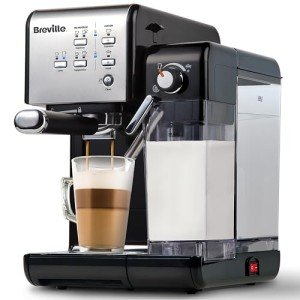How To Survive Your Boss On Home Use Espresso Machines
Home Use Espresso Machines: A Comprehensive Guide
Espresso machines have actually ended up being a staple in lots of homes as coffee lovers look for to replicate café-quality brews in the comfort of their kitchens. The rise in appeal has actually resulted in a varied market filled with numerous models, functions, and costs. Commercial Espresso Machines intends to supply a useful introduction of home use espresso machines, helping readers navigate their alternatives successfully.
Understanding Espresso Machines
Espresso machines work by forcing hot water through finely-ground coffee under high pressure, resulting in a concentrated coffee beverage called espresso. There are several types of espresso machines categorized based on their developing techniques and level of automation. The most typical types consist of:
Manual Espresso Machines: These require the user to control the pressure and water circulation, enabling for a more hands-on coffee-making experience.
Semi-Automatic Espresso Machines: These offer automatic control over water pressure, while the user manually grinds and tamps the coffee.
Automatic Espresso Machines: With the push of a button, these machines automatically manage the flow of water, making it easier to brew espresso with constant results.
Super-Automatic Espresso Machines: These all-in-one machines deal with grinding, tampering, brewing, and even milk frothing, making them perfect for users looking for convenience.
Pill or Pod Machines: These use pre-packaged coffee pods to produce espresso with minimal effort, but they restrict choice in brewing techniques and flavors.
Table: Comparison of Espresso Machine Types
Type
Control Level
Reduce of Use
Cleaning up Level
Ideal For
Manual
User-controlled
Moderate
High
Coffee purists
Semi-Automatic
Partial automation
Moderate
Moderate
Home baristas
Automatic
Totally automated
Easy
Low
Hectic individuals
Super-Automatic
Totally automated
Extremely simple
Really low
Convenience applicants
Capsule/Pod
Fully automated
Very simple
Really low
Casual drinkers
Key Features to Consider
When picking a home use espresso machine, it's necessary to consider various functions that can significantly impact the quality of espresso and user experience.
Pressure: Look for machines that offer at least 9 bars of pressure, as this is thought about optimal for brewing espresso.
Boiler Systems: Single vs. dual boiler systems determine temperature stability and the ability to brew espresso and steam milk all at once.
Grinder: Integrated grinders enable freshly ground coffee, which improves taste. Think about machines with adjustable grind settings.
Milk Frother: For those who take pleasure in coffees and lattes, an integrated steam wand or automatic frother is important.
Size and Design: Consider your kitchen space and visual choices. Machines can be found in numerous sizes, from compact to big setups.
Cost: Home espresso machines can vary from a few hundred to several thousand dollars, so it's crucial to establish a budget before exploring choices.
Pros and Cons of Home Use Espresso Machines
Pros
Cons
Convenience of developing coffee in the house
Initial investment can be high
Quality of espresso is frequently exceptional
Requires some ability, particularly with manual machines
Ability to try out tastes
Upkeep and cleansing can be labor-intensive
Can save money in the long run
Not all machines will fit every coffee preference
Upkeep and Cleaning Tips
Keeping an espresso machine is essential for extending its life and guaranteeing consistent brew quality. Here are some beneficial pointers:
Regular Descaling: Minerals from water can develop in the machine. Descale every 1-3 months, depending upon water solidity.
Daily Cleaning: Rinse portafilters, baskets, and steam wands after each use to avoid coffee oils from developing residue.
Use Filtered Water: This can help in reducing mineral buildup and enhance the taste of coffee.
Change Gaskets and Seals: These parts might wear gradually and needs to be replaced to preserve pressure and efficiency.
Check out the Manual: Each machine has specific care instructions; following these will guarantee longevity.
Frequently Asked Questions About Home Use Espresso Machines
**Q1: What is the very best budget espresso machine?The best budget espresso machine frequently depends upon private needs, but models like the DeLonghi EC155 or the Breville Bambino are popular among users for supplying fantastic value. Q2: How long do home espresso machines usually last?With correct upkeep, home espresso machines can last anywhere from 5 to 15 years, depending on the quality of the machine and frequency of use. Q3: Can I make cappuccinos and lattes with any espresso machine?While most espresso machines can make coffees and lattes, having a reliable
steam wand or frother is vital for achieving the right milk texture.
Q4: Are super-automatic machines worth the investment?For those who prioritize convenience and fast brewing, super-automatic machines can be worth the investment, though they may lack some customizability in brew strength and taste. Q5: What types of coffee beans are best for espresso?While personal preference contributes, beans identified as” espresso “blends are generally roasted darker, creating abundant flavors and a creamy texture when brewed.
Purchasing a home espresso machine can change the day-to-day coffee regimen into something unique, raising home brews to café quality. By understanding the various kinds of machines, essential functions to think about, upkeep needs, and weighing the
benefits and drawbacks, consumers can make informed decisions that suit their specific choices. As the espresso culture continues to grow, no matter the choice, every brew can be a tasty experience waiting to be appreciated.  **
**